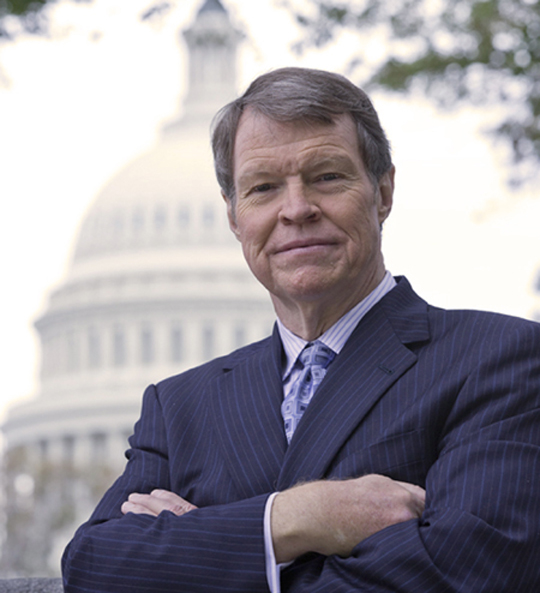
Merrill Matthews, Ph.D., is a resident scholar with the Institute for Policy Innovation, a research-based, public policy “think tank.” He is a health policy expert and opinion contributor at The Hill. He also serves on the Texas Advisory Committee of the U.S. Commission on Civil Rights.
Dr. Matthews is a past president of the Health Economics Roundtable for the National Association for Business Economics, the largest trade association of business economists. Dr. Matthews also served for 10 years as the medical ethicist for the University of Texas Southwestern Medical Center’s Institutional Review Board for Human Experimentation, co-author of On the Edge: America Faces the Entitlements Cliff, and has contributed chapters to several books, including Physician Assisted Suicide: Expanding the Debate and The 21st Century Health Care Leader and Stop Paying the Crooks (on Medicare fraud).
He has been published in numerous journals and newspapers, including The Wall Street Journal, Investor’s Business Daily, Barron’s, USA Today, Forbes magazine and the Washington Times. He was an award-winning political analyst for the USA Radio Network.
Dr. Matthews received his Ph.D. in Humanities from the University of Texas at Dallas.
Supporting Obamacare Means Never Having to Say You're Sorry
Democrats will never apologize for Obamacare even though it now contains elements, such has high deductibles, they long decried.
To Grow the Economy, Make Welfare Recipients Work
The economy needs workers to grow, and President Trump's welfare work requirements will help provide them.
Prescription Drug Importation: Unsafe, Unnecessary and Unwise
Sen. Bernie Sanders has an amendment to allow prescription drug importation, even though numerous officials assert it's unsafe, and the vast majority of Americans have prescription drug coverage.
EDITORIAL: Finding Hope After Trump's Climate Retreat
This weekend the Trib has devoted a generous amount of ink and paper to differing views on President Trump’s decision to withdraw from the 2015 Paris climate accord. Those opinions range widely, from Washington Post journalist Ben Adler’s concern for both environment and economy, increasingly dependent on renewable energy and green initiatives, to conservative Texas scholar Merrill Matthews’ fears that the accord made too many demands of developed nations for environmental change, which he suggests (and with strong evidence) is already being positively affected by free-market forces.
The News Only Gets Worse for Obamacare and Democrats
It is becoming extremely difficult to disguise or defend the Affordable Care Act's collapsing individual health insurance marketplace, but that isn't keeping the left from trying. ObamaCare defenders now claim that premiums are rising because Trump won't guarantee to pay insurers certain subsidies for covering low-income people.
Trump's Tweet Tirade Against Germany Could Backfire On U.S.
"The U.S. has a trade deficit because consumers have money to spend — and they spend it," said Merrill Matthews, IPI resident scholar, in a recent post. "Moreover, when U.S. consumers buy foreign goods and services (the current account), that money returns in the form of investment (the capital account). In other words, the accounts balance."
Why Is Trump Complaining About German Trade?
Germany produces quality products and services that consumers, including Americans, voluntarily choose to buy. So why is President Trump criticizing Germany's trade surplus?
Research and Commentary: State High Risk Pools for Health Insurance
Merrill Matthews of the Institute for Policy Innovation examined state high-risk pools and determined what made certain state pools successful.
Report Says Bill Leaves 51 Million Uninsured in 2026
CBO: 23 Million Would Lose Health Insurance Under House Health Care Bill
Just ahead of the report's release, the Institute for Policy Innovation issued a statement reacting to yet another health insurer's decision to pull out of Obamacare. "Democrats sold Obamacare as a way to expand access to health insurance and lower the costs. Just the opposite is happening," said Merrill Matthews, IPI resident scholar. "What we are seeing is a collapse of the individual insurance market."



.jpeg)


